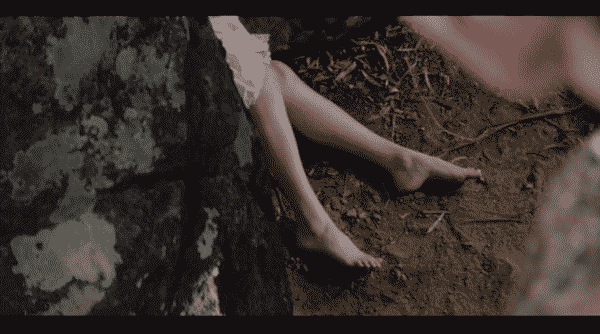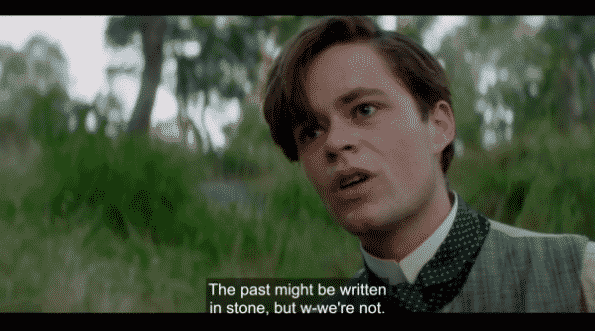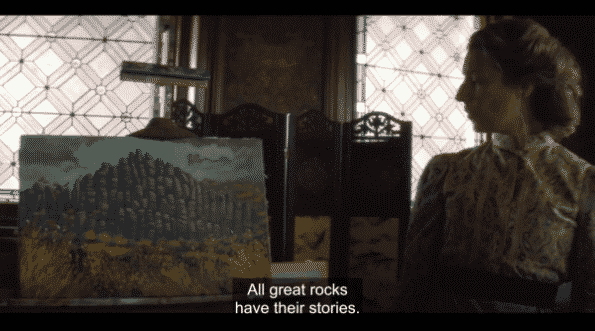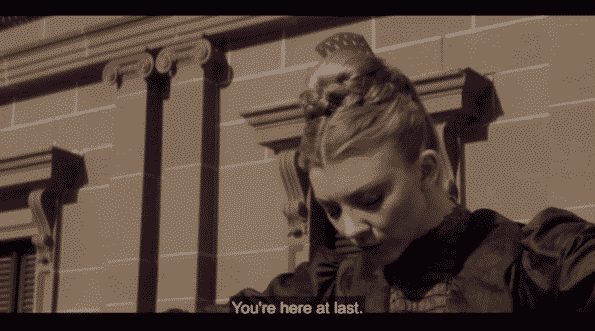Picnic at Hanging Rock: Season 1/ Episode 2 – Recap/ Review (with Spoilers)
As Picnic at Hanging Rock continues, the mystery becomes more about why this production was handled as it was than anything dealing with the characters. Network Amazon Prime Director(s) Larysa Kondracki Writer(s) Beatrix Christian Air Date 5/25/2018 Actors Introduced Michael Harrison Gilbertson Albert James Hoare Ms. McGraw Anna McGahan Ms. Lumley Yael Stone Mrs. Valange…

Spoiler Alert: This summary and review contains spoilers.
Additionally, some images and text may include affiliate links, meaning we may earn a commission or receive products if you make a purchase.
As Picnic at Hanging Rock continues, the mystery becomes more about why this production was handled as it was than anything dealing with the characters.
| Network | ||
| Amazon Prime | ||
| Director(s) | Larysa Kondracki | |
| Writer(s) | Beatrix Christian | |
| Air Date | 5/25/2018 | |
| Actors Introduced | ||
| Michael | Harrison Gilbertson | |
| Albert | James Hoare | |
| Ms. McGraw | Anna McGahan | |
| Ms. Lumley | Yael Stone | |
| Mrs. Valange | Sibylla Budd | |
Why Is Michael In Austrailia?: Michael, Albert
To begin, there is the question of what made Michael get sent over to Australia? There is a hint that something happened while he was at Cambridge, so he is in Australia for his own good, but the controversy isn’t clear. For while one would assume it could be the scandal was homosexual relations, with the way he looks at Albert and reacts to him being paired with a girl from back home, then comes him being adamant about this search. Is it strictly because he is talked about as a suspect, maybe he had a crush on Miranda or the other young ladies?
It’s all rather hard to say but he spends a whole night at Hanging Rock to find the girls and does make a startling discovery.
Commentary

There is something about the way Gilbertson performs as Michael that is off. Not in a good way mind you, but like someone who is used to working on soap opera and overdoing it and is struggling to reign it back in. Which makes his place in this series certainly not one to dispel the sort of “meh” vibe of it all. Yet, I must admit, the idea that he got sent halfway across the world because of a tryst or something with a boy is the slightest bit interesting. Though I don’t think he’d dare make a move on Albert. Unless he wants to, at best, be exposed or, at worse, look like a horse trampled him.
The Inspiration For The Hike: Sara, Irma, Miranda, Marion, Mrs. Valange, Mrs. Appleyard, Ms. Lumley
Many months before the disappearance, perhaps a year, Irma arrived at Mrs. Appleyard’s school and it was the same day Sara arrived. Back then, Sara was sweet and polite, as much children are in unfamiliar places, but with rooms being arranged so that Irma could sleep alone, hence how she became so close to Miranda. For, formerly, it seems Miranda and Marion were roommates but with a wisp of a word, Marion, Miranda, and Sara seemingly were to share a single room. However, being that Irma was feeling a bit odd and isolated, she offered to share and off Marion went. Thus leaving Miranda with Sara who, being an orphan, and lonely herself, attached herself to Miranda.
Which sometimes was difficult to do for while Marion was kind, Irma could be a bit possessive. Such as when, after committing a bit of truancy, Ms. Lumley and Mrs. Appleyard decide to punish Miranda by caning her hands. An act so violet her hands had to be bandaged afterwards. Leading to Sara, trying to help her best friend, to speak about stealing some liquor from Mrs. Appleyard which is supported. Also, it is when that tin is discovered. However, upon her return, Irma redirects Sara and takes the liquor procured.
Leading to Ms. Lumley’s class. Being that Irma comes from money, and it is the 1900s, naturally, she shows off how worldly she is as Mrs. Valange talks about the beauty of rock formations over all else. Leading Irma to mention the Sistine Chapel and Mrs. Valange noting she had trek all through Italy and her statement remains the same. But, what hooks the girls is Mrs. Valange’s mention of Bandrui from her time at Stonehenge and the idea of mysticism around Mount Diogenes (Hanging Rock). For, with Appleyard’s college not the most interesting of places, and Mrs. Valange being quite the convincing storyteller, it seems the girls wanted a story of their own. Even if it may be a dangerous journey.
Commentary

Oh, so this is the kind of show which presents the tragedy as a means to intrigue you then works its way up to it for the rest of the season? Bold move and I still feel it is a bit of a dumb one. For there seems to be a universal issue with it seeming no one has done a period drama before, so they are really trying to mimic the stylings of some Jane Eyre adaptation. Which just seems off for as much as Mrs. Appleyard is about being traditional and such, most of the girls seem to be lower to working class. Irma being an exception.
And even in episode two, there remains the issue of being able to see any girl as a real hook for the show. While Sara is adorable and Miranda likable, alongside Ms. Lumley being odd and a creep, there remains this thought that if you aren’t into the actresses, there is nothing to convince you to continue. Outside of just finishing what you started.
A Rotting Secret: Mrs. Appleyard, Arthur
As you can imagine, with her school still being fairly new and she surrounded in a shroud of mystery, the disappearance of the girls is by no means good for Mrs. Appleyard. After all, enough girls mail home about the disappearance and that means them being pulled and there goes Mrs. Appleyard’s reputation. One she seemingly holds dear for, depending on how you look at it, she might have been a sex worker. I can’t say for sure, but there is her hiding under the bed of a naked man that Arthur kills. So either this was her doing sex work or else her trying to get a man to take her away from Arthur.
Someone who could very well just be all in her head.
Commentary

I honestly wish this was a movie so it could be watched all in one shot, over 90 minutes, and I’d be done. For there is just enough of a pulse with this show to keep you interested, but it isn’t so alive you want to quickly binge through the whole thing. Focusing on Dormer, while not the strongest lead actress, by far, being the most recognizable benefits her and leads her to have some sort of commanding power over scenes.
Yet, perhaps since the role has been modified for her so heavily, like with everything else in the show, there is something off. Really making you wonder, outside of feeding off name recognition, what was the purpose of this new adaptation? What is it trying to say, is it supposed to be seen as entertaining or even to prove some of these people can act?
For, not to be cruel, it isn’t making whatever is the point of this well-known.
Highlights
- There is a little bit of intrigue when it comes to Michael’s reason for being in Austrailia and Mrs. Appleyard’s relationship with Arthur. Well, her past in general.
Low Points
- There remains this weird vibe that the actors are just not really meant for the roles they play. Not to say it is talent wise, but more so the writing and how they are performing the roles. It’s as if between the directions given or this being adapted just enough to fit a predominately youthful cast, there wasn’t enough time and effort put in so the story would translate as well. Not in terms of being modernized. More so translating it to address the casting changes as well as the specific talents of the actors cast.
And while I get acting is like a muscle and it needs to be pushed and challenged, it’s one thing when you are doing that with a new property, or when the only reference material is a book. However, when the role has been performed before and you’re taking on a classic? You can’t present a learning as you go type of production.
Which, again, isn’t to question the actors’ talent but more so how their talent was utilized and whether they were pushed so far out of their comfort zone they continuously were playing catch up.
Follow Wherever I Look on Twitter, Like us on Facebook and Subscribe to the YouTube Channel.
Previous Episode’s Recap
[visual-link-preview encoded=”eyJ0eXBlIjoiaW50ZXJuYWwiLCJwb3N0IjoyMTE3MywicG9zdF9sYWJlbCI6IlBvc3QgMjExNzMgLSBQaWNuaWMgYXQgSGFuZ2luZyBSb2NrOiBTZWFzb24gMS8gRXBpc29kZSAxIFtTZXJpZXMgUHJlbWllcmVdIC0gUmVjYXAvIFJldmlldyAod2l0aCBTcG9pbGVycykiLCJ1cmwiOiIiLCJpbWFnZV9pZCI6MjExNzYsImltYWdlX3VybCI6Imh0dHBzOi8vd2hlcmV2ZXItaS1sb29rLmNvbS93cC1jb250ZW50L3VwbG9hZHMvMjAxOC8wNS9QaWNuaWMtYXQtSGFuZ2luZy1Sb2NrLVRpdGxlLUNhcmQucG5nIiwidGl0bGUiOiJQaWNuaWMgYXQgSGFuZ2luZyBSb2NrOiBTZWFzb24gMS8gRXBpc29kZSAxIFtTZXJpZXMgUHJlbWllcmVdIC0gUmVjYXAvIFJldmlldyAod2l0aCBTcG9pbGVycykiLCJzdW1tYXJ5IjoiUGljbmljIGF0IEhhbmdpbmcgUm9jayBtYXksIGF0IGJlc3QsIGJlIGEgc2xvdyBidXJuIG9mIGEgc2hvdyB3aGljaCBob3BlcyB5b3XigJlsbCBzdGljayBhcm91bmQgdGlsbCB0aGUgZW5kIHJhdGhlbiB0aGFuIGp1ZGdlIGl0cyBtZXJpdHMgc3RyaWN0bHkgb24gdGhlIGZpcnN0IGVwaXNvZGUuIiwidGVtcGxhdGUiOiJkZWZhdWx0In0=”]


